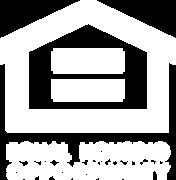H o m e b u y e r E d i t i o n MortgageGUIDE












the source for your local mortgage loan solution


Purchasing a home is something you will do only a handful of times. The process can be a stressful and overwhelming experience…BUT, it doesn’t have to be!
Walden Mortgage Group is committed to providing our clients with unmatched personalized service while also finding the best solution for your financial needs
We represent a wide variety of regional and national lenders with numerous loan programs that are as unique as you. We strive to make the homebuying experience enjoyable and stress free!
Who are we?
Welcome!
We are Walden Mortgage Group, your local Mortgage Broker!
Your homebuying journey should begin with finding a trusted mortgage loan officer. We will work hard to fully understand your financial situation and homeownership goals. Together, we will determine the best loan program that meets your needs. We are here to help guide you through every step of the process. From application to the closing table, we walk with you every step of the way.
We look forward to working with you.








VP / Loan Officer

NMLS# 44452 mdunn@waldenmg com 859.619.2997
NMLS# 44462 jsharp@waldenmg com 859.608.2948
NMLS# 44472 hsharp@waldenmg com 859.351.7771
NMLS# 62224 rwhiteley@waldenmg com 859.749.9795
NMLS# 309295 msimmons@waldenmg com Ph 865 249 8293 Cell 865 599 1902
NMLS# 384199 djohnson@waldenmg com Ph 865 862 4536 Cell 865 789 6077

Simply defined: A mortgage loan is used to purchase or maintain a home, land, or other types of real estate. A mortgage can also be used to refinance a property you may already own. The property then serves as collateral to secure the loan.

Most homeowners have a mortgage loan. Very few of us have the option of paying cash for a home. A mortgage loan enables a buyer to put a minimum amount down (or greater) at closing. Mortgage loans have allowed many to realize their dreams of homeownership. If you are already a homeowner, a mortgage loan refinance will allow you to access the equity in the home to possibly lower your monthly payments or take cash out to help cover some of life’s expenses. For example, home repairs, college tuition, etc.

After working with your loan officer, a down payment amount is determined for you to bring to closing. The remaining money owed to the seller is funded by the mortgage loan. As the borrower, you agree to pay the lender this amount over time in addition to interest on the loan. A mortgage loan payment is typically made in a series of regular payments that include principal and interest. A portion of property taxes, homeowners insurance, and monthly mortgage insurance may also be included in the payment. Once the lender is paid in full, the mortgage lien will be released from your title. You will own the home free and clear of any debt at that time.

Find a Loan Officer: Your homebuying journey should not begin with shopping for a home. Your journey should start with finding the right loan officer. Mortgage loans are long term debt that create a long-term relationship with you and your loan officer. Feeling confident that your loan officer is knowledgeable and offers the right loan product, while providing excellent customer service, is key to the beginning of your homebuying journey.
Get Pre-Approved: After choosing a mortgage loan officer, you must complete a pre-approval application. The loan officer will help determine various mortgage options for your specific financial situation. At this point, you will have an idea of monthly payments and the amount due at closing. The loan officer will issue a pre-approval letter that provides a seller and their real estate agent a sales price and loan amount specific to you.
Find a Home: Once you find a home that meets all your needs within your price range, it is time to make an offer. Once your offer is accepted, you may decide to do a home inspection. The inspector will help determine the condition of the property and detail if any repairs are needed.
Submitting your loan application: With a signed contract we are now able to lock in an interest rate through your closing date. At this point, you may need to supply updated financials to your loan officer. Once all financials are provided, the loan is submitted to underwriting. An underwriter verifies all financial information given to the loan officer and may ask for additional documents or explanations.

Appraisal and Title: An appraisal is a professional unbiased opinion of the homes value. Lenders use appraisals to confirm your offer is in line with the fair market value of the property. Appraisals are used to keep buyers from overpaying for a home. A title company or real estate attorney will perform a title search on the property to make sure there are no outstanding liens tied to the home.
Closing and Funding: The closing is a meeting where all parties (buyer, sellers, realtors, & title agent) involved in the transaction come together to sign the legal documents and loan documents. Buyers and Sellers may meet as a group or separately. At closing you will sign several loan documents and the lender will transfer the funds for the mortgage loan to the seller.
The pre-approval process may be the most important step in the home buying journey. This is where you and your loan officer determine a monthly payment amount that suits your needs and the amount of funds required from you at the closing table. A valid pre-approval confirms your creditworthiness to realtors and sellers. A buyer with a valid pre-approval letter is in a much better position when the seller is considering their offer. A valid pre-approval letter is based on a review of your credit report, income, and assets. Any lender that does not review credit, income, & assets cannot provide a valid preapproval letter.



Many applicants choose to complete an online pre-approval application. However, the application can also be completed with your loan officer over the phone or with a face-to-face meeting. You will need to provide personal information such as social security number, DOB, housing and employment history, and current assets. Your credit report will receive a hard inquiry but don’t worry. If you are mortgage shopping and your credit is checked by several different mortgage lenders within 45 days, the bureaus treat this as one credit inquiry when impacting scores. In addition, mortgage inquiries affect scores very little, even if outside of that 45-day window. If all factors meet underwriting guidelines, your loan officer will issue a preapproval letter that is good for 120 days from the date of the credit inquiry.
Below are the documents we may require
Most recent 30 days paystubs
W2’s for the last two years
Most recent two months bank statements from checking, savings, etc.
Valid unexpired photo id

Self Employed?? Provide most recent two years of Federal Personal and Business Tax returns, including W2’s, K 1's & 1099’s, if applicable

Choosing the right mortgage loan is very important. You should be comfortable with the total mortgage payment and funds required at closing before shopping for a home. During your pre approval application, your loan officer may provide various estimates on the following loan types based on your specific financial situation



Conventional mortgage loans are backed by Fannie Mae and Freddie Mac. All buyers must meet the underwriting requirements of the secondary market (Fannie & Freddie). The loan repayment term may vary from 10-30 years. While most mortgage loans have a fixed rate over the life of the loan, a buyer may choose a conventional loan with an adjustable rate if that better suits their needs. Down payment requirement is as little as 3%-5% of the sale price. With a 20% down payment, you are not required to pay mortgage insurance as part of your payment. Credit scores above 740 receive the lowest rates available on the secondary market.
FHA (Federal Housing Administration) is a government loan that is typically offered to first time buyers with little or lacking credit history. However, FHA loans are also for repeat buyers. The down payment requirement is 3.5%. Government backed loans are typically more lenient with credit blemishes and lower scores. The interest rate is not as affected by a score under 720 compared to conventional financing. If you do not have 20% down, the monthly mortgage insurance is often lower with FHA at lower credit scores. FHA does have a maximum mortgage loan amount specific to your area. Your loan officer can provide this amount. Regardless of down payment, FHA loans have an upfront mortgage insurance premium and monthly mortgage insurance premium.
VA (Veterans Administration) is a government loan offered to veterans or active military members. In some cases, a veteran’s spouse may obtain a VA loan. VA loans have 0% down payment requirement and NO monthly mortgage insurance. Depending on the veteran’s status, the upfront funding fee may be waived. Upfront funding fees vary. It is possible to have more than one VA loan at the same time. Your loan officer can check your eligibility to determine if a down payment is required on your second VA loan. Various military documents are required for VA financing.


USDA/RHS (US Dept. of Agriculture/Rural Housing) is a government loan that requires specific property eligibility in addition to being subject to maximum household income limits. Requires 0% down payment. USDA/RHS loans have an upfront guaranty fee and monthly guaranty fee. However, the monthly amount is discounted quite a bit compared to FHA and Conventional with lower credit scores. Your loan officer can determine if you meet household income and property guidelines for USDA/RHS 100% financing.

Down payment is the percentage of the purchase price buyers are required to pay at closing. Minimum down payment amounts can vary from 0% to 5% based on the loan program.
Closing costs are expenses that both the buyer and seller incur that must be paid at closing. Closing costs are NOT included in the minimum down payment requirements. A typical estimate of closing costs expected to pay at closing is roughly 2% of your sales price. However, your loan officer will provide an estimate that is specific to your loan program and situation. Common closing costs are:
Prepaids are future fees that must be paid at closing. They are not included in your closing costs because these amounts are set by your homeowners insurance agent, the county tax assessor, and HOA (if applicable). Various prepaids include:

Earnest money is a deposit paid at the time you make an offer on a home. It is part of the sales contract and made payable to your real estate agent’s company. This deposit represents a buyer’s good faith intentions to follow through with the purchase of the property by the specified closing date. Earnest money deposits are typically 1%-2% of the sales price. The buyer will receive a credit for their earnest money deposit at closing. This amount is credited toward down payment. There are certain circumstances when the seller may keep the earnest money deposit if the buyer defaults on the contract. Please check with your real estate agent for specifics. Appraisal
First year homeowners insurance premium Pre-paid interest (based on closing date) Prorated property taxes. This may be a charge or credit depending on the time of year.
Property taxes required for the escrow account
Homeowners insurance required for the escrow account

HOA Dues, if applicable

Principal payments are used to repay your loan to the lender. The principal portion of your payment reduces the owed amount (principal balance) of your loan each month.
The lender charges interest daily based on your interest rate reflected on the loan note at closing. The amount of interest you pay over the life of the loan is based on the interest rate and the time is takes to repay the principal balance.
State and local governments impose property taxes on real estate owned. If your mortgage loan includes an escrow account, 1/12 of your annual property tax liability is paid each month as part of your payment. This amount goes into your escrow account to pay the property tax bill each year.
Lenders require homeowners insurance on every mortgage loan. The dwelling coverage must equal the loan amount or include full replacement costs. As a buyer, you choose your insurance agent and any additional coverage amounts. Your loan officer will estimate an amount at the time of application. This amount is changed to match your agent’s premium invoice at closing. If you escrow homeowners insurance, 1/12 of your annual homeowners insurance is paid each month as part of your payment. This amount goes into your escrow account to pay your homeowners insurance premium each year.

Unless you put 20% down on the purchase of your home, the lender requires mortgage insurance. This is an insurance policy for the lender to reduce their risk in the case of loan default. Mortgage insurance premiums are based on down payment amounts and credit scores on Conventional Financing. Upfront & monthly mortgage insurance and guarantee fees on government loans are based on a set percentage regardless of credit score and down payment amounts. With 20% down payment, conventional financing does not require mortgage insurance nor an escrow account.

Annual Percentage Rate (APR) is the rate of interest you pay over the life of your loan plus any additional lender fees (discount points, origination fees, mortgage insurance, underwriting, processing fees, etc.). The APR is typically higher than your interest rate because the APR includes all lender fees.
Debt to income ratio is your monthly debt payments divided by your monthly income. Lenders use this number to determine qualification amounts.

Your escrow account is an account that is paid into each month with a portion of your monthly payment. 1/12 of homeowners’ premium and 1/12 of propertytaxes are a portion of your monthly mortgage payment when you have an escrow account. The lender will use this account to pay your annual property tax bill and homeowners insurance premium. An escrow account is required with government loans and conventional loans with less than 20% down payment.

Equity is the portion of the value of your home less the amount you owe on a mortgage loan. For example, if your home value is $200000 and you owe $150000 on a mortgage loan, your equity portion is $50000.

Loan to Value Ratio. The loan amount(s) on a home divided by the value or sales price. For example, $200,000 loan amount divided by $250,000 value equals 80% loan to value.
Number of years reflected on your mortgage note to re-pay the loan in full. Terms can be from 10-30 years.
Based on the day of closing, prorated portions of the property tax bill and HOA bill may be collected from you and paid to the seller or credited to you from the seller.
Deed reflects the property owner, property address, and property description. This document is recorded at the clerk’s office. A title search is performed to determine if the property has any outstanding liens prior to purchase. All liens must be paid in full by the seller at or before closing in order for the title/deed to change hands.
We hope this Homebuyer Guide has helped to simplify and prepare you for your homebuying journey. We would love to help you get started today. All Walden Mortgage loan officers have 20+ years in experience and have been a part of this community for decades. Throughout the years, we have helped so many of your friends, neighbors & colleagues achieve their dream of homeownership, and we are dedicated to help you do the same








Now that we have gone through all the mortgage basics together, it’s time to begin your homebuying journey. As your mortgage lending expert, we will guide you through the entire process with full support.


NMLS# 140166; KY MB23721; TN# 115617
